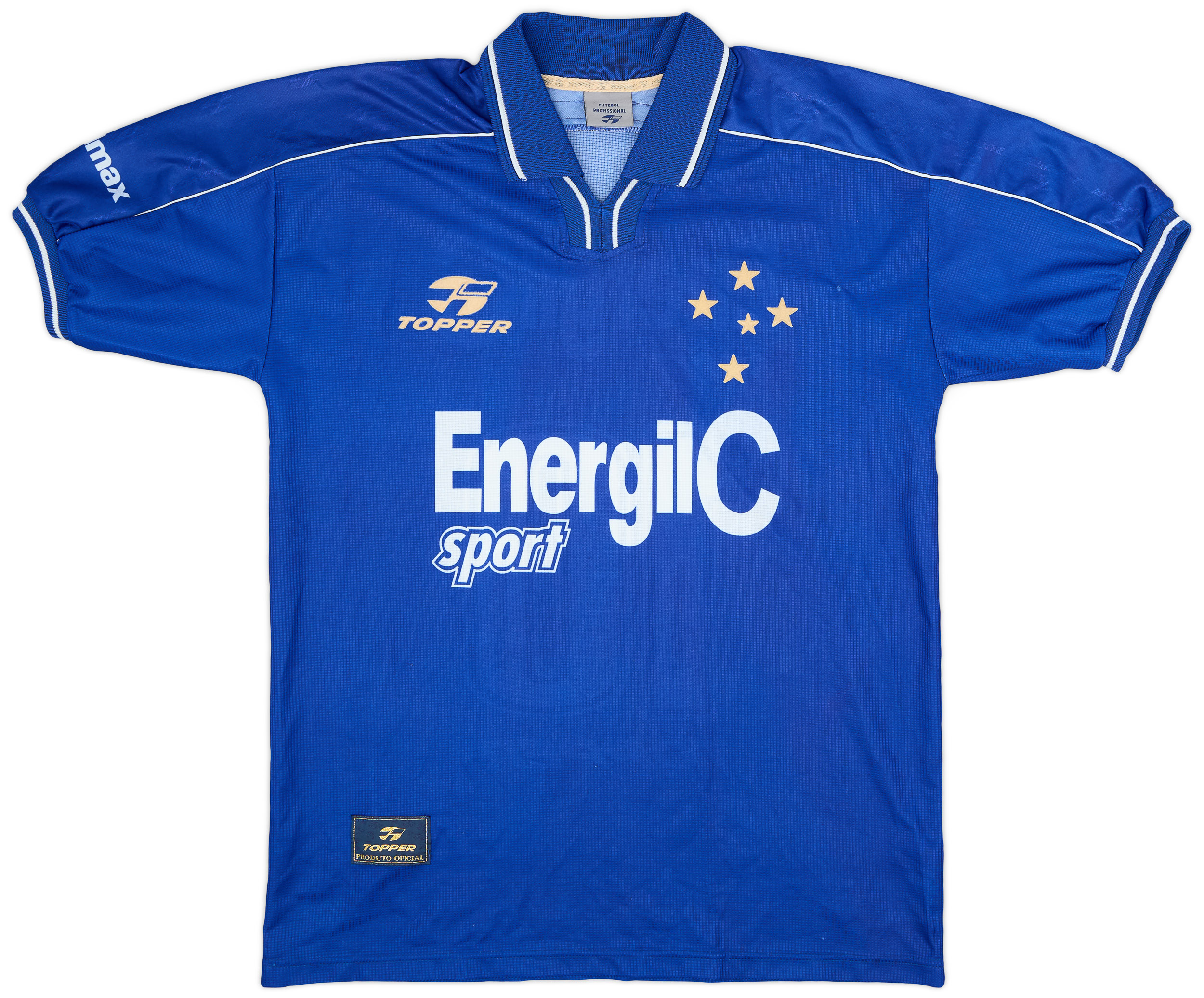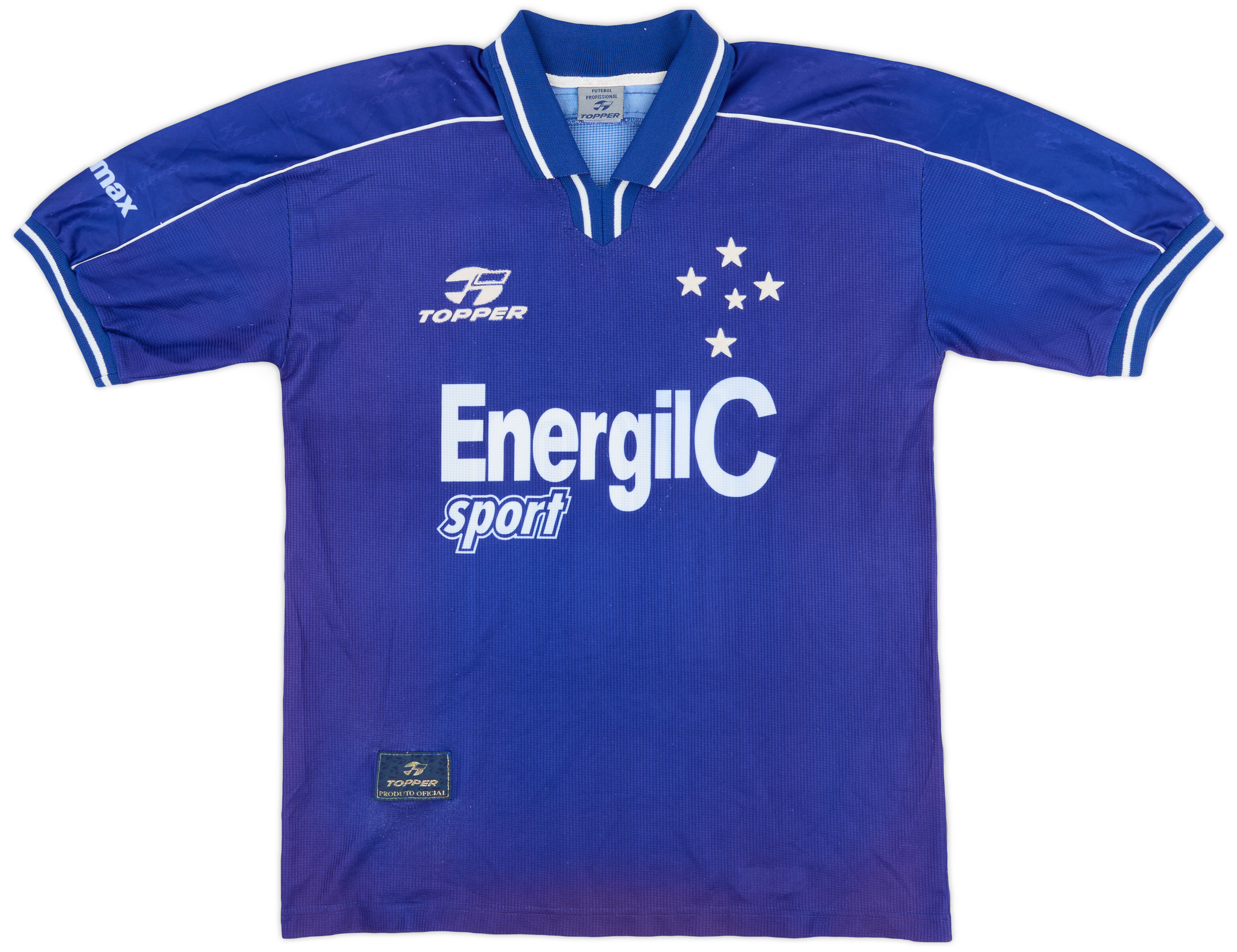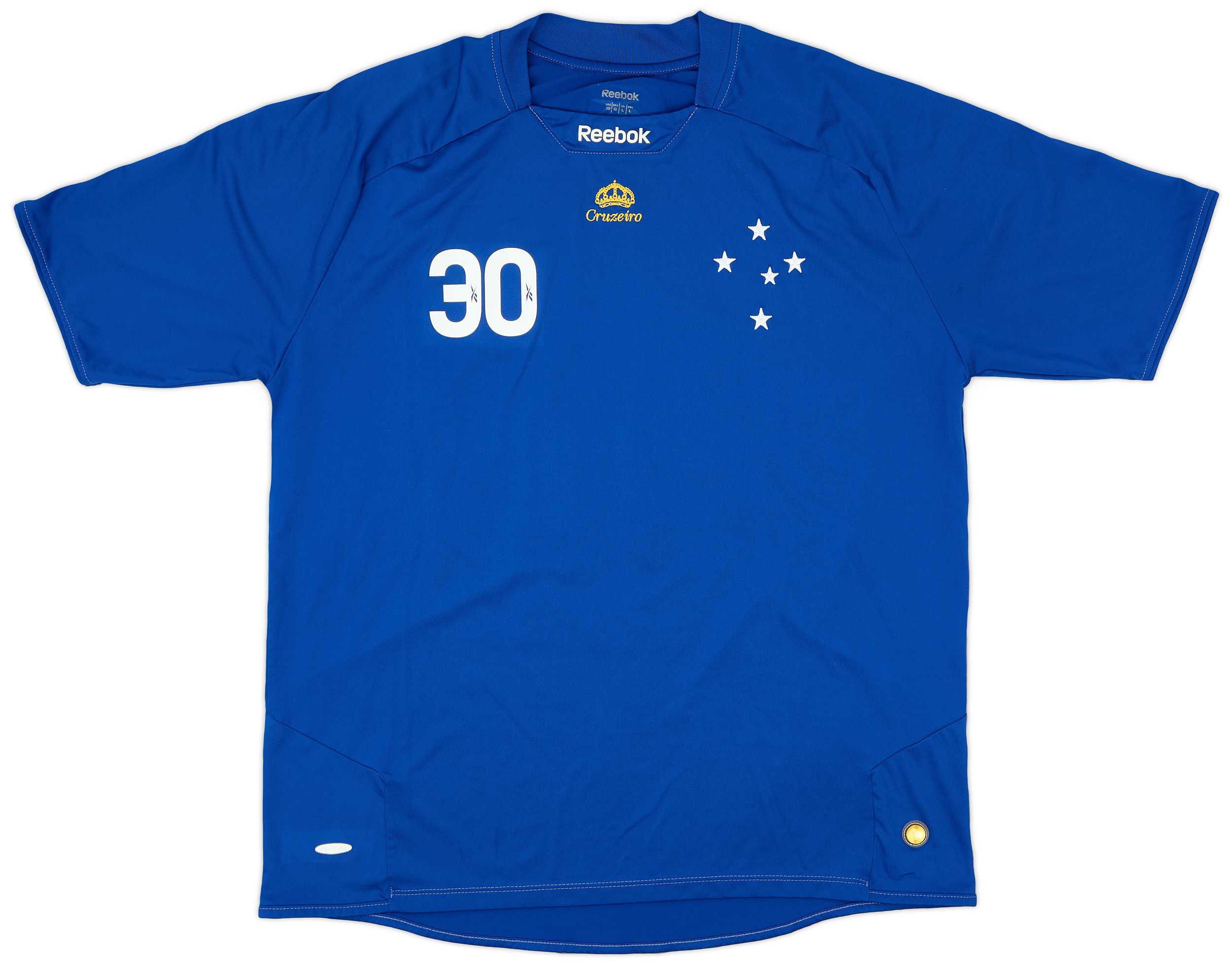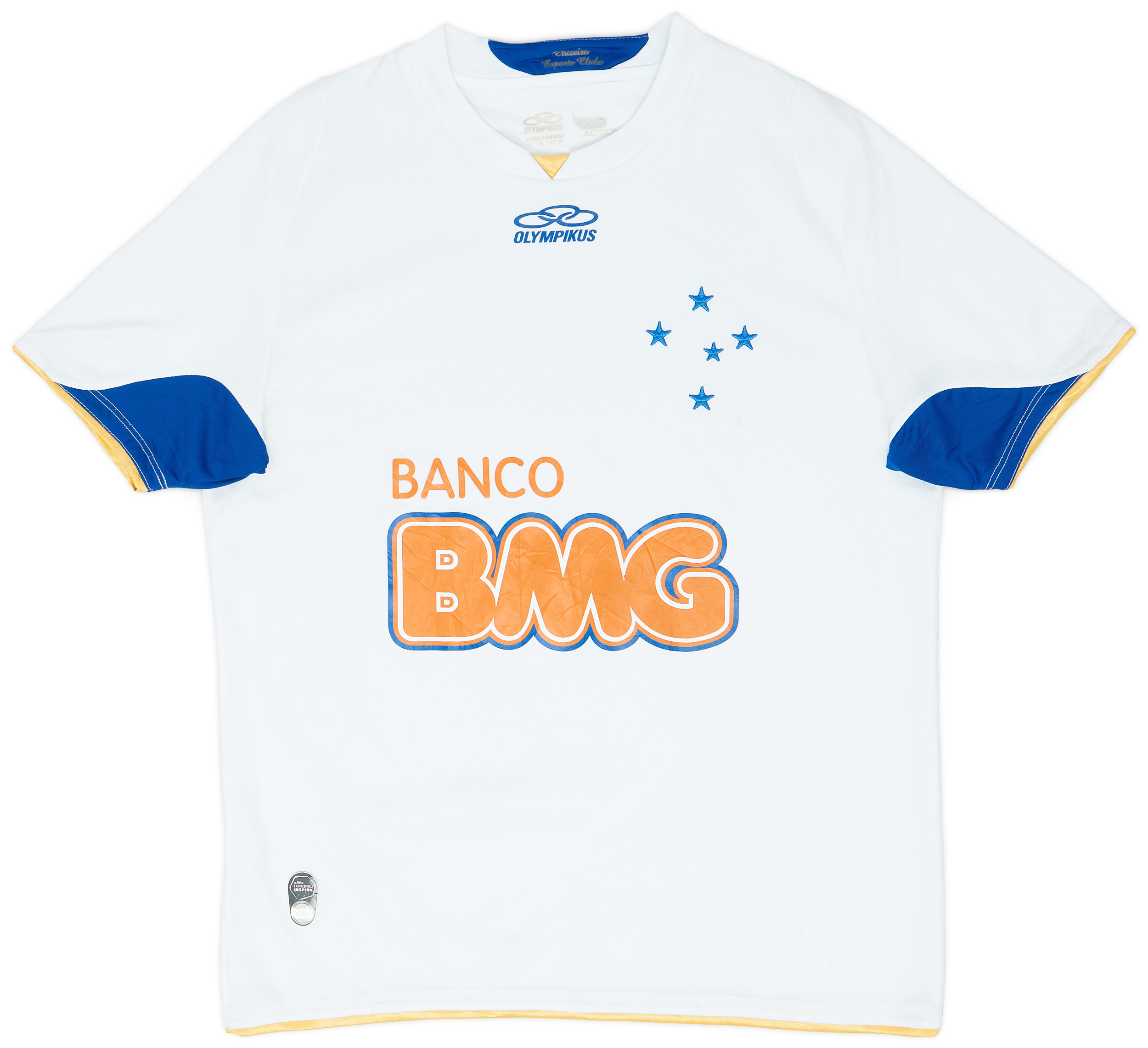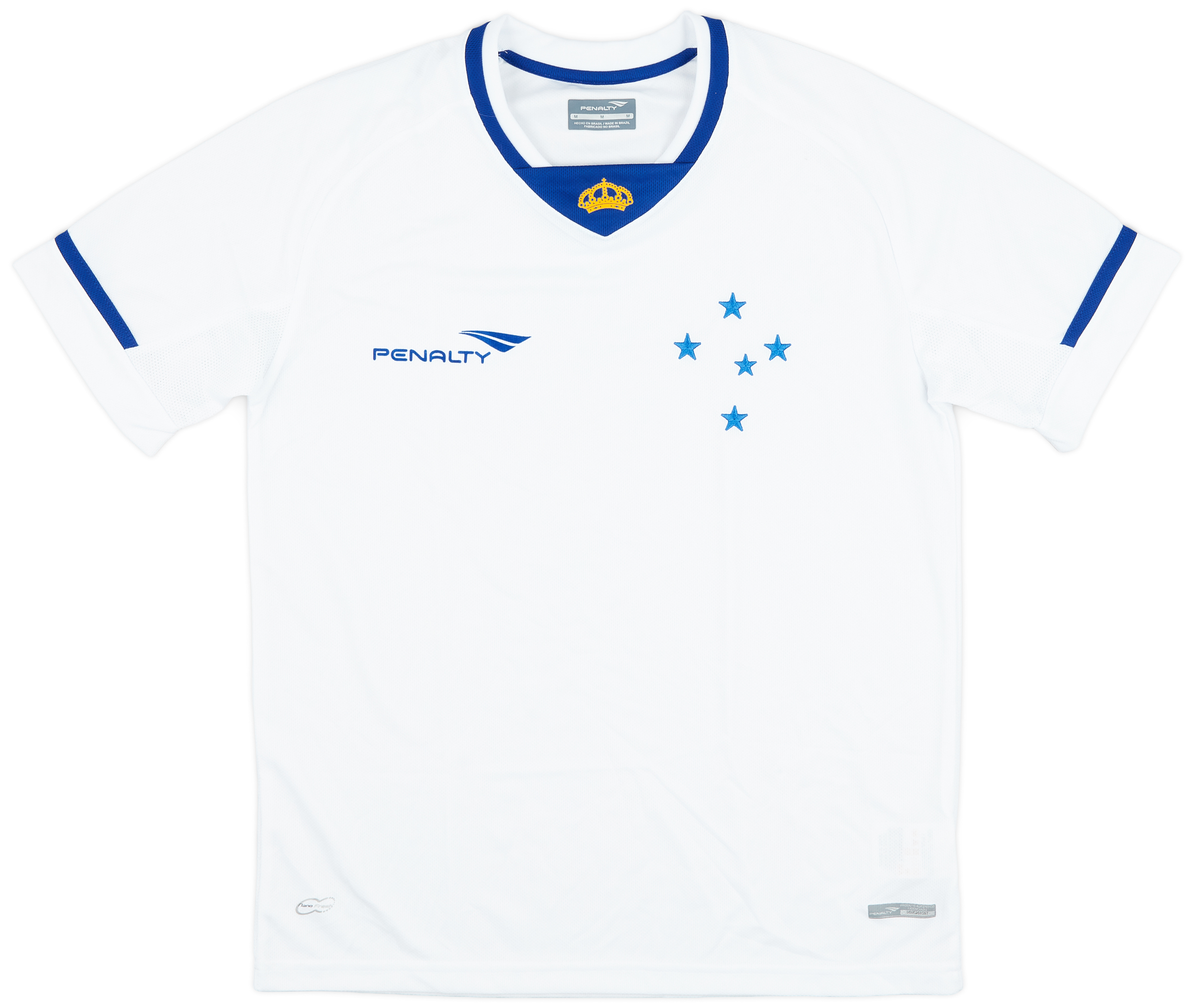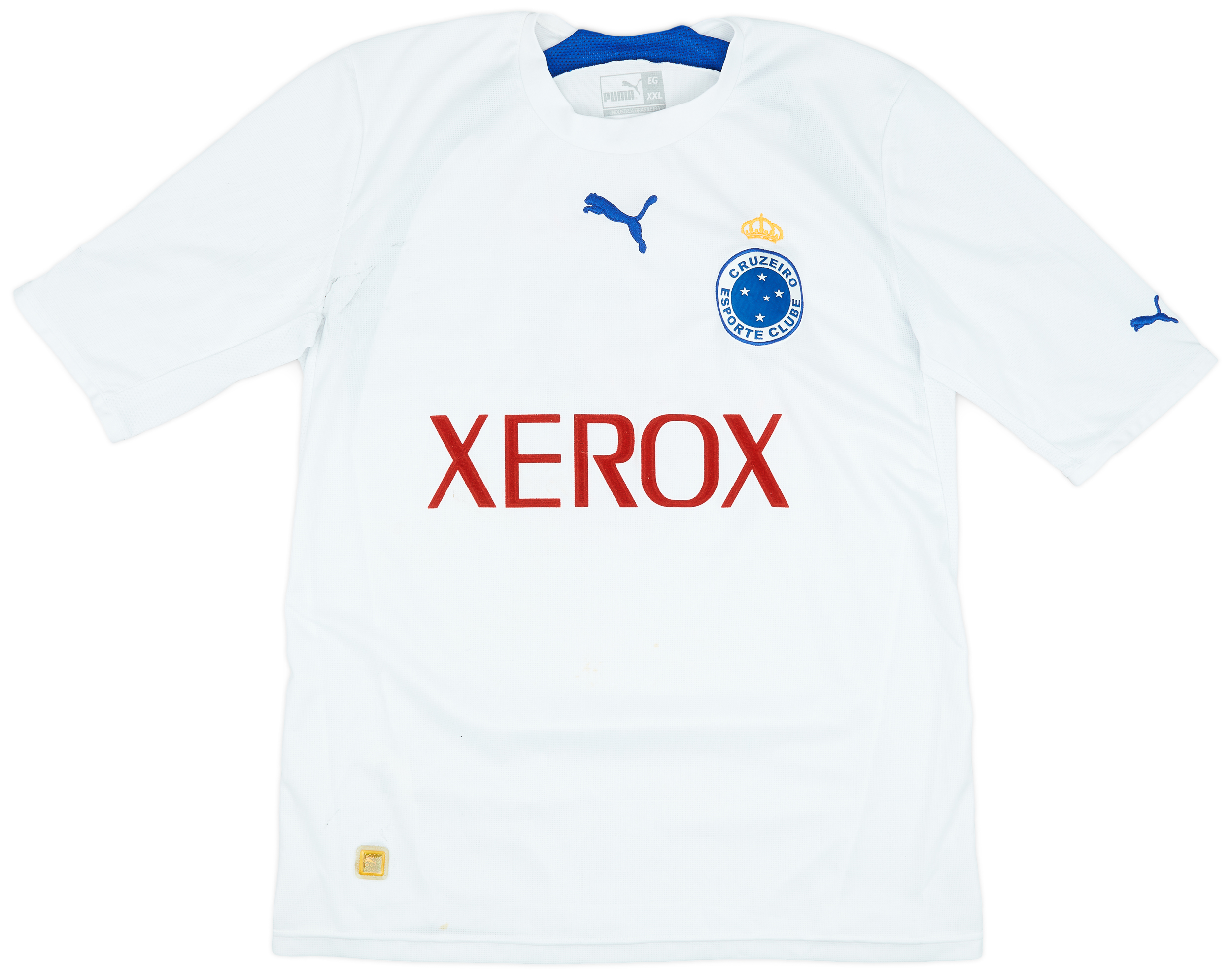Cruzeiro
Introduction Founded in 1921, Cruzeiro Esporte Clube has carved a prominent place in the annals of Brazilian football. Based in Belo Horizonte, the capital of Minas Gerais, the club represents more than just a team; it embodies the spirit and passion of Brazilian football. With its distinctive blue and white colors and an eagle as […]
1993-94 Cruzeiro Home Shirt #7 - 7/10 - (M)
237.99£ - ca: €281
1999 Cruzeiro Home Shirt #10 - 8/10 - (L)
177.99£ - ca: €210
1999 Cruzeiro Home Shirt #10 - 8/10 - (L)
177.99£ - ca: €210
2009 Cruzeiro Home Shirt Kleber #30 - 8/10 - (L)
94.99£ - ca: €112
2004 Cruzeiro Home Shirt #10 - 7/10 - (XL)
94.99£ - ca: €112
2020 Cruzeiro Third Shirt (S)
94.99£ - ca: €112
2012 Cruzeiro Home Shirt Montillo #10 - 8/10 - (S)
82.99£ - ca: €98
2015 Cruzeiro Home Shirt #10 (De Arrascaeta) - 9/10 - (S)
70.99£ - ca: €84
2012 Cruzeiro Away Shirt - 8/10 - (M)
70.99£ - ca: €84
2015 Cruzeiro Away Shirt - 9/10 - (M)
70.99£ - ca: €84
2006 Cruzeiro Away Shirt #10 - 5/10 - (XXL)
53.99£ - ca: €64
Introduction
Founded in 1921, Cruzeiro Esporte Clube has carved a prominent place in the annals of Brazilian football. Based in Belo Horizonte, the capital of Minas Gerais, the club represents more than just a team; it embodies the spirit and passion of Brazilian football. With its distinctive blue and white colors and an eagle as its mascot, Cruzeiro’s identity is steeped in rich traditions and a fervent fanbase known as “Cruzeirenses.” The club has grown from humble beginnings to become one of the country’s most successful and revered football institutions.
Club History
Cruzeiro was established on January 2, 1921, originally named Società Sportiva Palestra Itália, reflecting the influence of the Italian immigrant community. In 1942, during World War II, the club changed its name to Cruzeiro Esporte Clube, a decision that would forge a new path for its future. The club’s first major success came in the early 1930s when they won the Campeonato Mineiro, a title they would go on to claim many times throughout their history. The late 1950s and early 1960s marked a golden era for Cruzeiro, highlighted by legendary players like Tostão and Dirceu Lopes, who helped the club achieve national and international acclaim.
Achievements
Cruzeiro’s trophy cabinet is a testament to its stature in Brazilian football. The club has won the prestigious Campeonato Brasileiro Série A title a remarkable **four times**: in 1966, 2003, 2013, and 2014. Internacionally, Cruzeiro has had notable success in the Copa Libertadores, winning the tournament in **1976** and **1997**, establishing themselves as one of the continent’s premier clubs. The club’s victory in the 1976 Copa Libertadores over the Argentinian club River Plate was particularly memorable, highlighting Cruzeiro’s resilience and skill on an international stage.
In addition to their national and continental success, Cruzeiro has frequently dominated state championships, winning the Campeonato Mineiro **over 38 times**, with the most recent title coming in 2021. Their consistent performances in these competitions reflect Cruzeiro’s deep-rooted competitiveness and determination to remain at the forefront of Brazilian football.
Significant Players and Matches
Cruzeiro has been home to many exceptional talents that have left their mark on football history. Among them, **Tostão**, who played in the 1970 World Cup for Brazil, is often celebrated as one of the greatest forwards in the club’s history. His vision and scoring ability were instrumental in guiding Cruzeiro to numerous victories. Another notable player is **Ronaldo Nazário**, often referred to as ‘Fenômeno.’ Although his time at Cruzeiro was brief, he made his professional debut with the club, where he showcased his immense talent before moving to Europe and becoming a global superstar.
Cruzeiro’s matches against their arch-rivals Atlético Mineiro are legendary, known as the “Clássico Mineiro.” These encounters, charged with high emotions and fierce rivalries, provide some of the most thrilling Football memories. One unforgettable match took place on March 1, 1992, during the final of the Campeonato Mineiro, where Cruzeiro triumphed over Atlético Mineiro, solidifying their dominance in state football.
Cultural Impact
Cruzeiro holds an esteemed place in the culture of Minas Gerais and Brazil as a whole. The club has fostered a passionate and dedicated fanbase that has been resilient through various highs and lows. Celebrated for its unconventional style, the club has influenced regional music, bars, and local identity, becoming a source of pride for many. The club’s anthem, “Acréscimos,” rings out during matches, echoing the community’s shared commitment to the team. Additionally, Cruzeiro engages in numerous social initiatives, extending its influence beyond the football field and positively impacting local communities.
Conclusion
Cruzeiro Esporte Clube stands as a prominent pillar of Brazilian football history. With a legacy forged through remarkable achievements, iconic players, and profound cultural impact, the club possesses a rich narrative that resonates with fans worldwide. As Cruzeiro continues to evolve and navigate the ever-changing landscape of football, its roots remain deeply entrenched within the heart of its city and its supporters. For many, Cruzeiro is more than a football club; it is a symbol of passion, resilience, and Brazilian identity.

